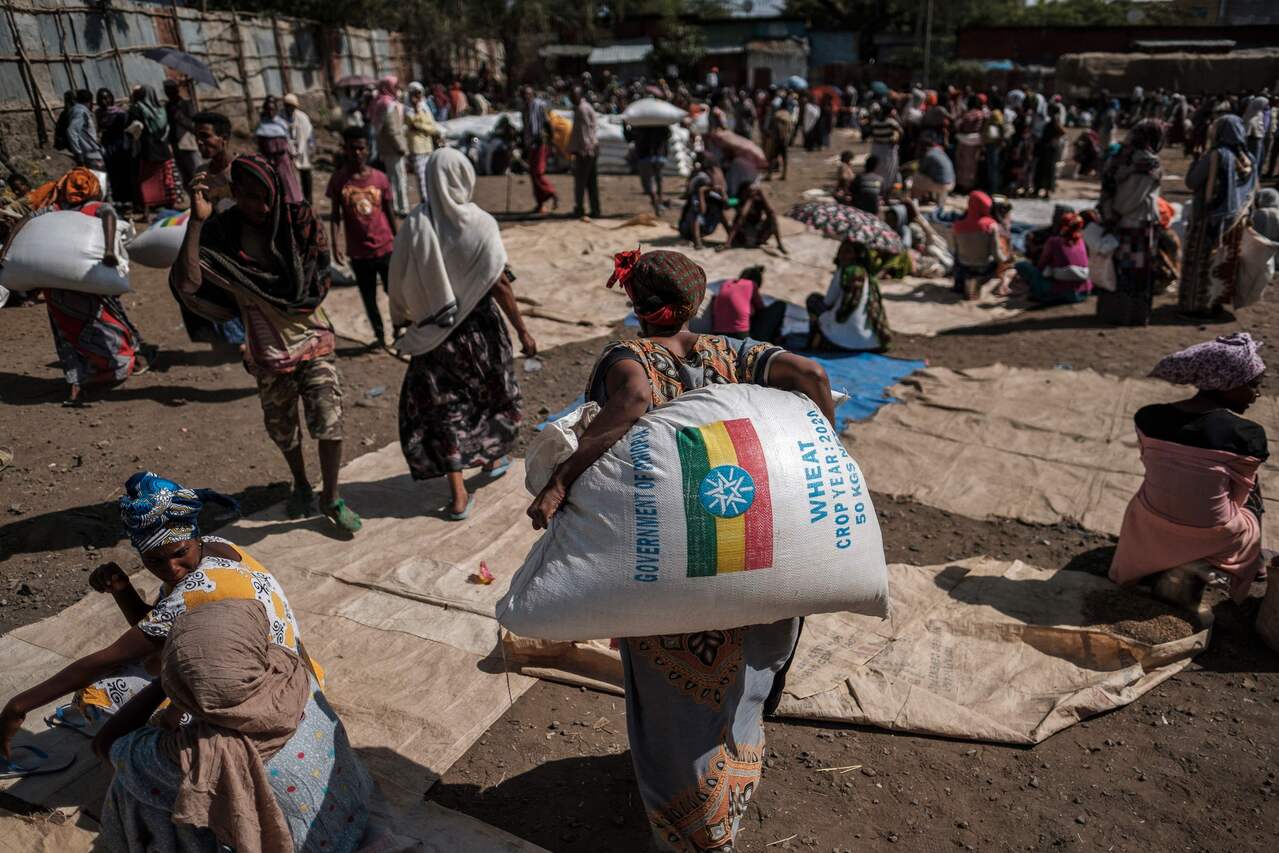Global hunger hits highest level in years after Covid-19 pandemic hurts incomes
Sign up now: Get ST's newsletters delivered to your inbox

Conflict and insecurity remain the largest causes of hunger, responsible for almost two-thirds of those facing food crises.
PHOTO: AFP
NEW YORK (BLOOMBERG) - The world faced its worst hunger problem in at least five years in 2020 on the back of the coronavirus crisis, and the outlook remains grim again this year.
Some 155 million people across 55 countries - more than the population of Russia - suffered from issues ranging from a food crisis to famine, according to a report with data from more than a dozen agencies.
That's up 20 million from 2019, with economic shocks overtaking extreme weather as the No. 2 cause.
The worsening situation highlights how the pandemic has exacerbated food inequalities around the world, on top of extreme weather and political conflicts that are stifling access to key staples.
Consumers are now also contending with rising food costs as rampant Chinese demand stretches global crop supplies.
"Covid-19 has been exacerbating fragilities," said Mr Dominique Burgeon, director of emergencies and resilience at the UN's Food and Agriculture Organisation.
"Its restrictions, for example, on the movement of goods and people, has resulted in widespread income losses, especially for those people who rely on informal work in urban households."
Conflict and insecurity remain the largest causes of hunger, responsible for almost two-thirds of those facing food crises, according to the report created with help from agencies including the European Commission and United Nations' World Food Programme.
The Democratic Republic of Congo, Yemen and Afghanistan are some of the most-affected nations.
The number of people facing hunger primarily from economic shocks, including those related to the pandemic that cut jobs and incomes, jumped nearly 70 per cent last year to 40.5 million.
Supply chain disruptions also caused spikes in food prices, while higher inflation or weaker currencies in import-dependent nations made food less affordable, according to the report.
Women have been particularly hard hit, as they have been more vulnerable to losing jobs.
Global hunger is expected to hold above pre-pandemic levels this year, affecting more than 142 million across 40 countries, the report showed.
Conflicts remain a problem and economic hardship could intensify due to the coronavirus crisis, the agencies said.
Last year, about 28 million people were in an "emergency" state of food insecurity, or worse.
"We are extremely concerned," Mr Burgeon said.
"When we look at the early data we have from 2021, we see that this number has already increased."


